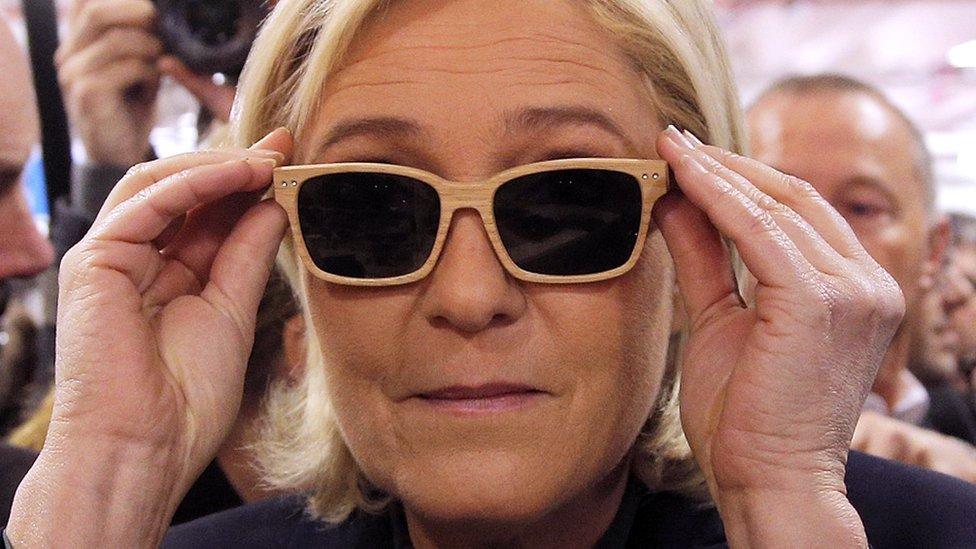France election: Fillon floors rival in conservative primaries
- Published
Who is Francois Fillon?
Francois Fillon has taken the conservative ticket in next year's French presidential election by a landslide at party primaries.
With nearly all the ballots counted, he had won 66.5% to 33.5% for his run-off rival, Alain Juppe.
The former prime minister promised to build a fairer society, saying France wanted "truth and... action".
A new opinion poll suggests he would easily beat the far right's Marine Le Pen in the actual election.
According to the Harris interactive poll quoted by BFMTV, external (in French), Mr Fillon would lead the National Front candidate by 26% to 24% in the first round, then win the run-off against her by 67% to 33%.
Mr Juppe, also a former prime minister and regarded as more moderate, congratulated Mr Fillon and pledged to support him in his bid to become president.

Analysis by Lucy Williamson, BBC News, Paris

Alain Juppe (left) and Francois Fillon awaiting the results on Sunday
Francois Fillon was the man to beat going into this run-off vote, and his team knew it.
Shortly after polls closed, they were already celebrating at his party headquarters, as the first partial results came in. Within hours, it was confirmed. Mr Fillon had won two-thirds of the vote; a stunning victory for the candidate once seen as the 'third man' in the contest.
Alain Juppe appeared in front of his own, determined supporters, to concede the contest. He gave a small smile to the crowds chanting his name and told them he was ending the contest as he began it: "A free man, who didn't betray who he was or what he thought."
The job for Mr Fillon now is to unite his party after this unprecedented primary battle, and prepare to take on the governing Socialist party - and the far-right leader Marine Le Pen - in presidential elections next year.

As the result of the Republican party primary became clear, Mr Fillon told his supporters he would work for change.
"If the French people entrust me with their confidence," he said, "I will try to respect that contract and conduct myself with dignity."
"I will take up an unusual challenge for France," he went on to say. "To tell the truth and completely change its software."
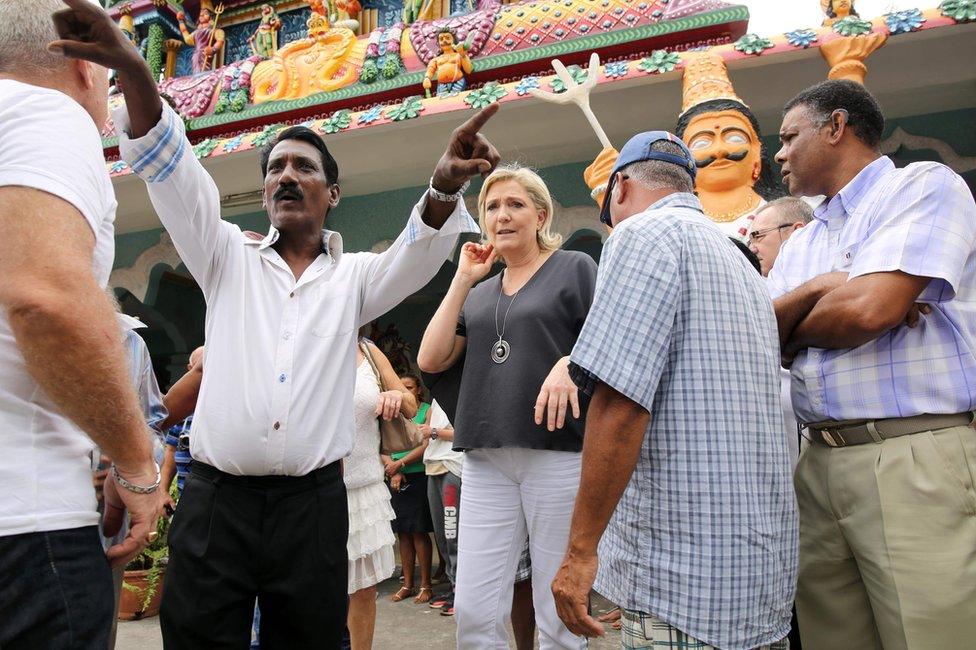
Marine Le Pen spent Sunday visiting a Hindu temple on the French Indian Ocean island of La Reunion
Mr Fillon had been widely expected to win the race, after securing 44% of the vote in the first round a week ago that saw former President Nicolas Sarkozy knocked out.
The 62-year-old is a Roman Catholic who is seen as a traditionalist on issues such as abortion and gay marriage.
He is proposing dramatic economic reforms that include slashing 500,000 public jobs, ending the 35-hour week, raising the retirement age and scrapping the wealth tax.
On foreign policy, he advocates closer relations with Russia.
Mr Juppe had initially been seen as the favourite to win the race but struggled against Mr Fillon's strong performances in the primary debates.

Poised to beat a 'comatose left': French media review by BBC Monitoring
Conservative daily Le Figaro warns, external Mr Fillon's biggest challenge will now be to stop the "terrible alienation of the ordinary voter", as he will need to appeal to a much broader constituency at the presidential election than in these primaries. Marginalised voters, it argues, are "being driven into the arms of the National Front by unemployment and uncontrolled immigration".
The centre-left Le Monde says, external Mr Fillon's clear victory gives him a "good chance of winning against the National Front and a comatose left".
France Info, a popular news website, declares, external that "'Mister Nobody' is en route for the Elysee Palace", adding that "it must be said that Francois Fillon has come a long way".

Now the spotlight falls on the Socialist party, and whether the deeply unpopular President Francois Hollande will stand again in his party's primaries in January. He is expected to announce his decision in the coming days.
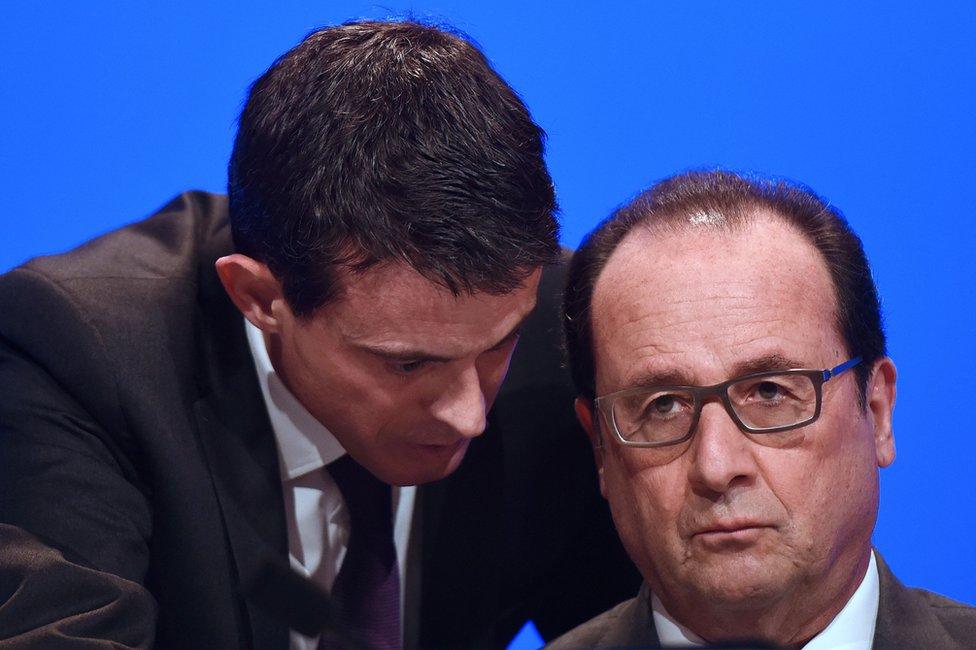
Could Mr Valls (left) go up against President Hollande (right)?
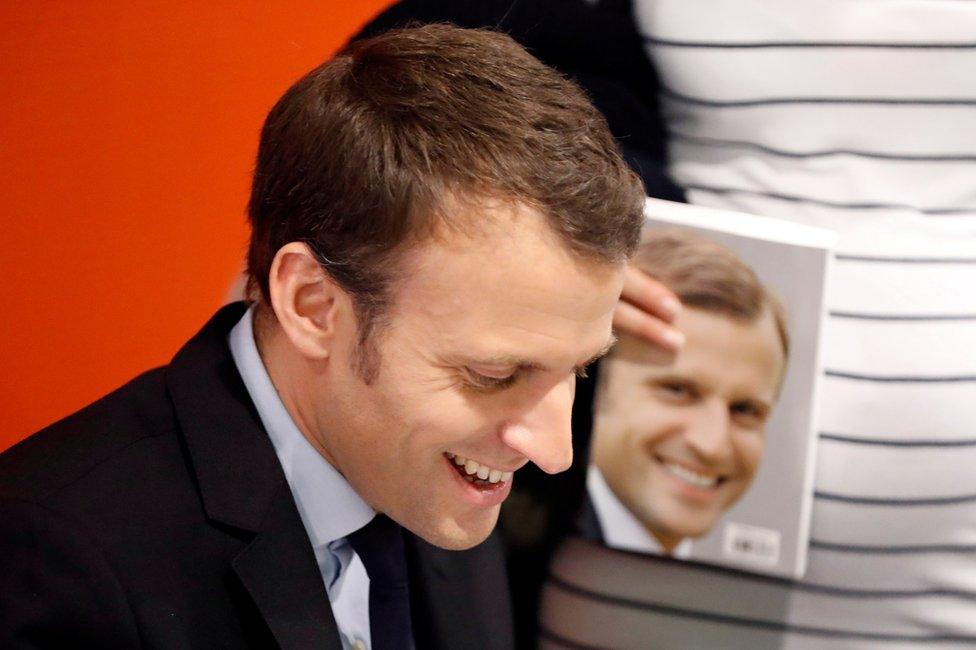
Former Hollande minister Emmanuel Macron is standing as an independent
Prime Minister Manuel Valls said on Sunday that he would not rule out running against Mr Hollande in the primary, telling the Journal du Dimanche he wanted to dispel the idea "that the left has no chance" of retaining power.
The two men are expected to have lunch together on Monday at the Elysee Palace, as they normally do each week, French media report.
But government spokesman Stephane Le Foll stressed that Mr Valls would need to resign in order to stand for the candidacy.
"There will not be a primary between the president and the prime minister," he told Europe 1 radio.
Earlier, Emmanuel Macron, the 38-year-old former economy minister and protege of Mr Hollande, announced plans to stand in the presidential election as a centrist independent.
- Published28 March 2017
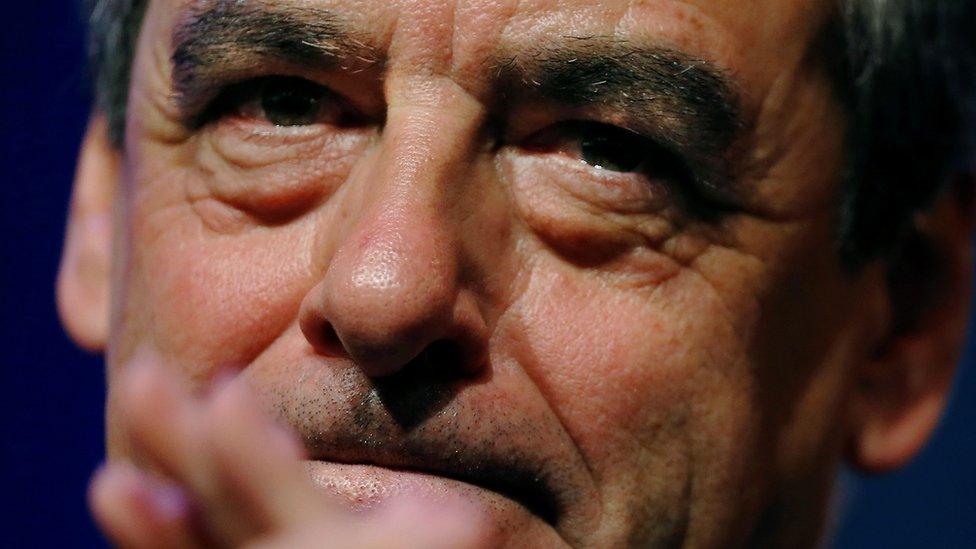
- Published26 November 2016
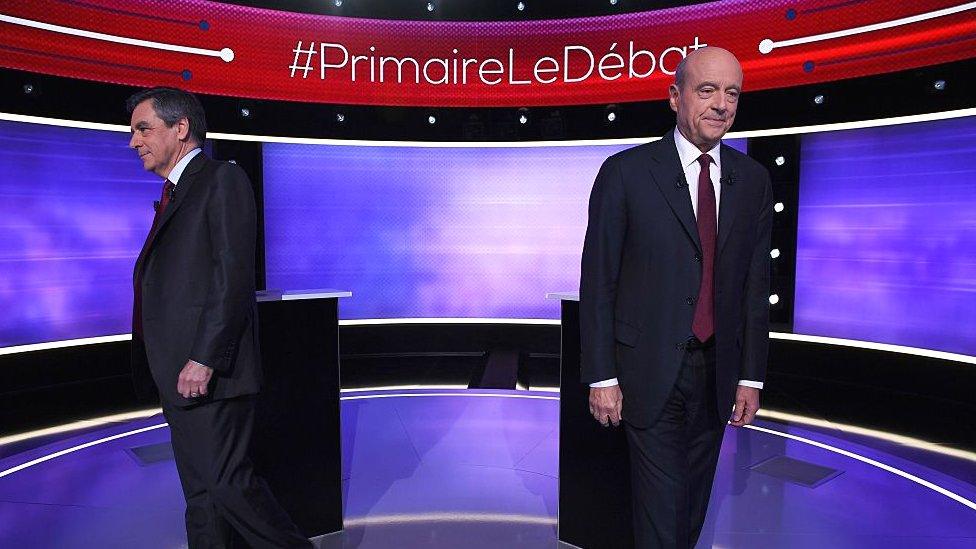
- Published7 December 2016
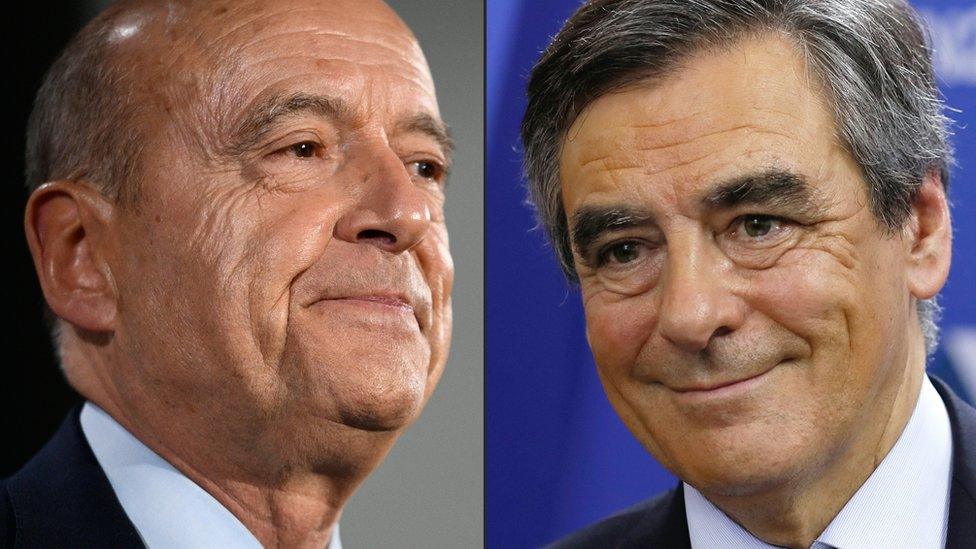
- Published19 November 2016
